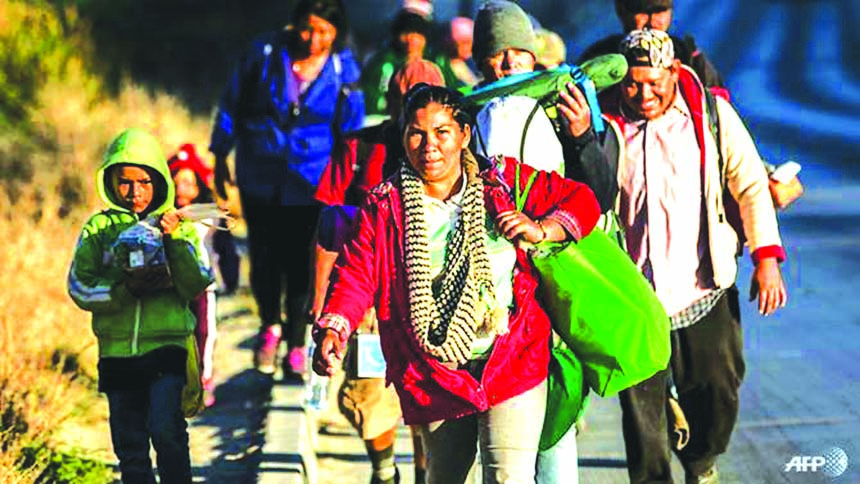
Reuters, Tijuana :
Central American migrants on Mexico’s northern border are coming under pressure from two sides as the Trump administration blocks asylum to anyone entering the United States illegally, while local politicians question whether they should be in Mexico.
U.S. President Donald Trump has sent almost 6,000 troops to fortify the U.S-Mexico border, and has threatened to close the frontier entirely to keep out the migrants.
In addition, an order issued by Trump means migrants must now present themselves at U.S. ports of entry, such as the Mexican border city of Tijuana, to have any chance of qualifying for refugee status. The order came into effect on Saturday.
City authorities say around 2,000 migrants are now in Tijuana, where some residents have not taken kindly to the arrival of the Central Americans, many of whom set out from Honduras a month ago to escape violence and poverty. More are expected to arrive this weekend.
Tijuana mayor Juan Manuel Gastelum criticized the recent arrivals, describing some as “bums.” He said a consultation would be held on whether the city, which lies some 17 miles (27 km) across the border from San Diego, California, should have to continue receiving the migrants.
In an interview with Milenio television, Gastelum complained that migrants had been hostile to local authorities and that the federal government had failed to control its southern border when the caravan of people began entering Mexico on Oct. 19.
“Tijuana is now in a serious predicament,” he said late on Thursday, noting that road blocks could be considered to stop more migrants from getting into the city. “It’s not fair.”
With many relatives living in the United States, Mexicans have traditionally shown support for migrants. However, a recent survey by polling firm Consulta Mitofsky showed just over a third of Mexicans wanted the migrants to be sent home.
Some of the Central Americans now clustered in the city’s streets and migrant shelters were unsure what the future held.
Exhausted, and stretched out on the floor of a migrant shelter, Honduran Alejandro Martinez said he did not have an alternative plan if the United States turned him away.
“I haven’t thought about what I’ll do if they don’t let me in. I’m going with faith in God that everything will turn out fine,” the 24-year-old Martinez said.
Many migrants Reuters spoke to in the shelters were unaware of the U.S. government attempts to deter them and said they were determined to forge ahead however they could.
Others are opting to stay in Mexico, which is processing 2,600 asylum requests from migrants in the caravan, the government said on Thursday.

